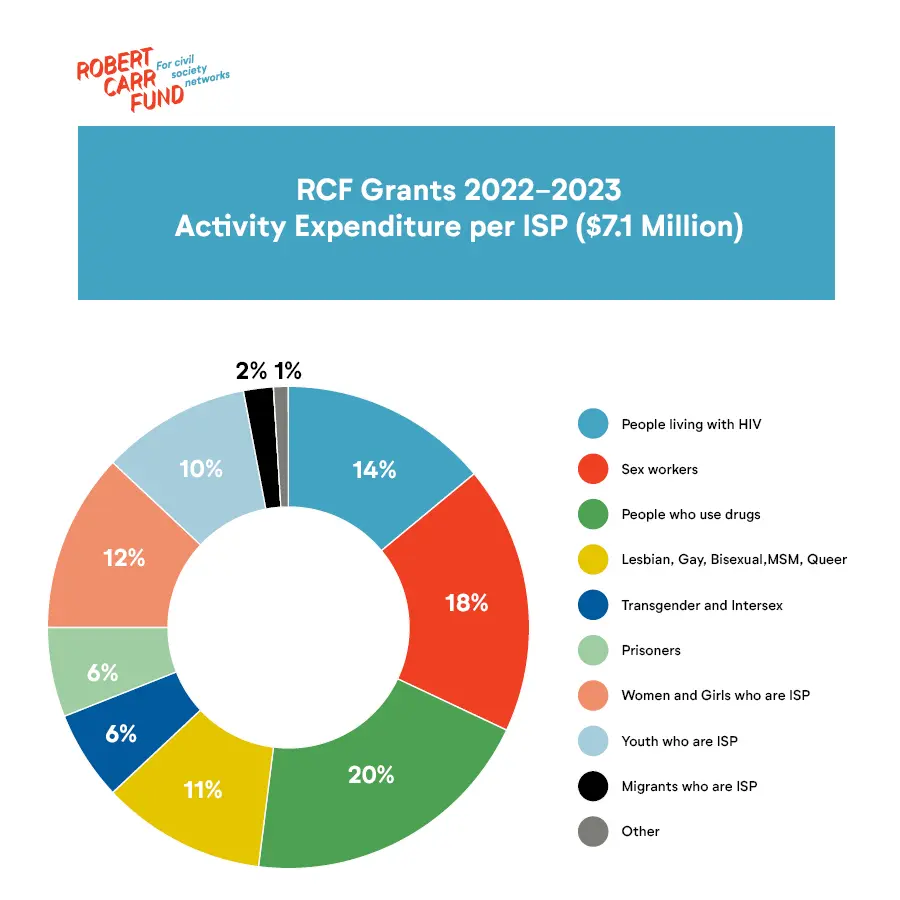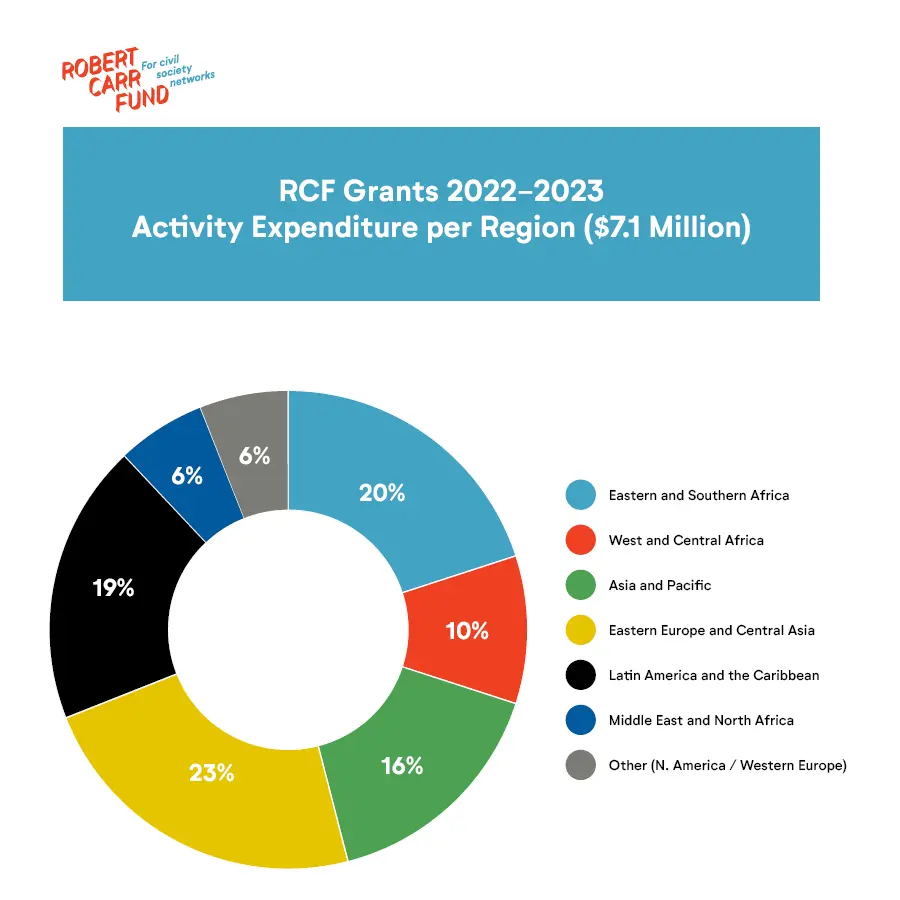Governance and Management
The Robert Carr Fund is governed by an International Steering Committee (ISC) and advised by a Program Advisory Panel (PAP). The Fund is managed by a Secretariat, which is in turn supported by a Fund Management Agent (FMA).
RCF funds community-led networks and consortia of networks, to build the strength, influence and resilience of Inadequately Served Populations (ISPs) across the world. Together we work to advance the global HIV goals, strengthen sexual and reproductive health and rights (SRHR) and strive for social justice for ISPs. We are making sure the most marginalized voices are not only heard, but lead the way.
Since 2012 Robert Carr Fund invested $125mln in more than 70 community-led and civic society networks globally.
Networks funded in 2022-2024
Networks funded in 2019-2021
Networks funded in 2020 (Strategic Opportunity Funding)
Networks funded in 2016-2018
Networks funded in 2014-2015
Networks funded in 2013
Shifting power to inadequately served populations (ISPs) who know the context and can respond effectively to it, improves the HIV response. When community-led networks are strong and powerful, the marginalized communities they support have more influence over the human rights and HIV issues that affect them. This in turn leads to better health and wellbeing for ISPs globally.


We invest in networks and consortia of networks across the world to build the strength and influence of communities and civil society in 5 ways:
RCF’s long-term, core funding enables networks to innovate, consolidate and sustain the work they know is needed.
The Robert Carr Fund defines ISPs as populations facing a high HIV risk, mortality and/or morbidity compared to the general population, and, at the same time, facing systematic human rights violations and barriers to information and services.
As people with direct experience of key health-related needs and barriers to health services, ISPs are central to efforts to improve human rights environments, improve access to HIV services, and improve efficiency and effectiveness of national and international funding for health and human rights.
The Robert Carr Fund includes the following populations as ISPs:
The RCF considers a network to be a membership of organizations that pool skills, experience, and resources, working towards common goals. A network creates venues for social action and is sustained through jointly developed governance structures, resources and regular communication. The Robert Carr Fund considers a consortium of networks to be a network-led group of networks, where other types of agencies or organizations with specific expertise may join.
The RCF supports networks and consortia to be democratic and representative, with governance, leadership and decision making involving and being informed by the populations who are intended to benefit from the work. The RCF also supports networks and consortia to function in an open and participatory manner, with structures, policies and procedures that facilitate broad participation in network activities, decision-making, and leadership and facilitate communication and collaboration across countries, populations and thematic priorities.
Read more about our definitions of in the Glossary.
The Robert Carr Fund is governed by an International Steering Committee (ISC) and advised by a Program Advisory Panel (PAP). The Fund is managed by a Secretariat, which is in turn supported by a Fund Management Agent (FMA).
With RCF's funding our grantees strengthen their networks, grow community leaders and conduct global and regional advocacy campaigns to protect rights and health of the inadequately served populations.
SAGE project focuses on empowering organizations and communities to tackle the root causes of gender inequality.
The RCF is a collective, pooled funding mechanism focused on HIV and sexual and reproductive health and rights (SRHR). We invest in regional and global networks and network consortia.
In 2023 RCF invested $11.4 mln in 71 regional and global community-led networks across the globe.
Updates, announcements and newsitems of the Robert Carr Fund.